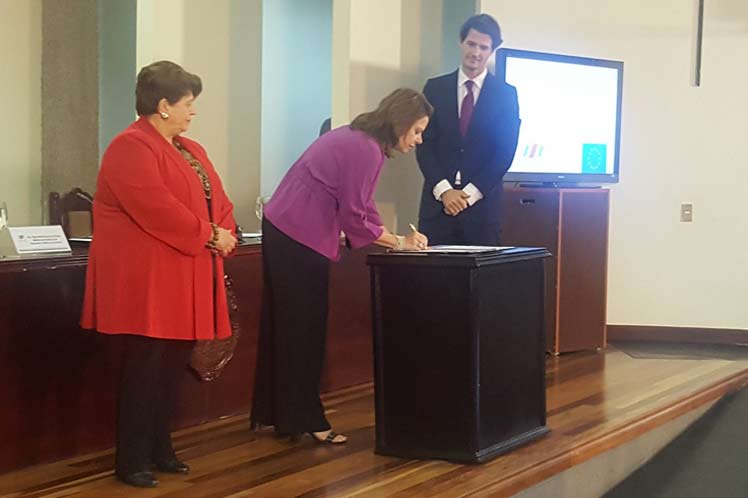The institutional commitment taken on by the Vice President and the Minister of Planning of Costa Rica and the Ambassador to the EU is the culmination of the European-Latin American meeting on social cohesion in San José, organised by EUROsociAL+

Through EUROsociAL+, the European Union will support Costa Rica in creating a Financial and Social Advisory Council (CCES, in its Spanish acronym) involving various social actors. Through the creation of the Costa Rican Financial and Social Advisory Council (CCES), the Solís Rivera Administration aims to create an authority which will facilitate intersectoral dialogue and consensus through projects and strategic initiatives of national interest. EUROsociAL+ will give the support needed to implement this council, whose legal personality is that of an advisory body to the national Executive Power.
To bolster these actions, the Costa Rican Ministry of National Planning and Economic Policy (MIDEPLAN) and EUROsociAL+ signed a letter to approve the action and affirm their inter-institutional commitment. This way, the EUROsociAL+ Programme will have the resources to identify and mobilise the expertise of Latin American and European institutions so that they can pass on the knowledge, experience and lessons learnt in each of the sectors under the commitment.
This event is the culmination of the European-Latin American meeting on social cohesion in San José, organised by EUROsociAL+, what it was inaugurated by the President of Costa Rica, Luis Guillermo Solís, and the Ambassador for the European Union, Pelayo Castro.
The Vice President of the Republic, Ana Helena Chacón Echevarría, said that “The CCES is the result of a set of strategic actions and the discussion process with the public and private sectors and civil society. It is increasingly important for our country to create a permanent space for dialogue and negotiation where organisations of workers, entrepreneurs and manufacturers, academia and other civil society organisations can sit down and work on concrete proposals to tackle the challenges inherent to Costa Rica’s social dynamics. This is why it was so important to create the CCES.”
The EU Ambassador to Costa Rica, Pelayo Castro, pointed out that the signing of this commitment came a week after EUROsociAL+ also held its annual meeting in San José, turning the Costa Rican capital into the centre of the European-Latin American social agenda, culminating with this commitment to create the Costa Rican Financial and Social Advisory Council.
The minister of Planning, Olga Marta Sánchez, said that EUROsociAL+ will rely on the best practices of leading countries in this field to educate Costa Rica and reinforce consensus building and social cohesion.
EUROsociAL+, Presidencia de Costa Rica y MIDEPLAN



